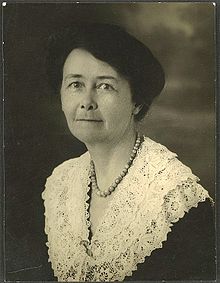on #meninism and why we still need the stella prize
I recently read a feature on the #meninism social media “movement”, which has been described as everything from satire gone wrong to a mockery of first world feminism.
The piece was written by Jesse Fink, well known to leagues of Aussie sports fans for his columns and commentary across all spectrums of media.
It wasn’t exactly a thought-provoking piece about #meninism or the fight for equality between the sexes, but I couldn’t stop thinking about Fink’s words.
Don’t get me wrong; Fink does make some fairly interesting surface arguments about the so-called movement, which has become, as writer Petra Starke puts it, a parody of itself. Fink is a man who isn’t buying into it – and there is no way he’ll be wearing a hashtag shirt to show his support.
And I applaud his side-note to ‘disgruntled young men behaving like pigs’ telling them that ‘women don’t deserve to be called “bitches” – however amusing you think you’re being’.
The story started to lose me when Fink began to make an argument for meninist, a “catchy” term that could be used to describe the ‘hypocrisy and double standards of our society, as seen by men’.
Take, for example, how it’s acceptable for women to judge a man by his height but not for men to judge a woman by her weight – a common “joke” on the #meninist and #meninism Twitter feeds. While this could have been a valid (and unoriginal) point about social conditioning, there was no thoughtful debate about the beauty standard. Fink made it sound like a get out of jail free card.
It was the next paragraph in particular, though, that made me stop and wonder whether Fink was taking the piss or whether he was serious. According to the author, it is unnecessary for women writers in Australia to have their own prize – the Stella Prize – an award that points to double standards because apparently ‘Hell would freeze over’ before there was a single literary prize for men’.
Unfortunately, Fink was serious. This was not a tongue-in-cheek reference to the thousands of #meninist outcries for justice and equality.
Fink pulled a few numbers from Google to back up his belief that the Stella is not warranted: ‘For the 2013 Miles Franklin Award, eight of the ten writers on its longlist were women; in 2014, seven of the 11 were women; and Evie Wyld, Michelle de Kretser and Anna Funder, all women, have won the past three, but still women are said to be disadvantaged’.
Before we all start cracking the champagne and whooping ‘we’ve made it!’ let us first consider that in its 54-year history, the Miles Franklin has been awarded to 40 men, while only 17 women have claimed the prize. Interestingly, it is only since the inception of the Stella in 2012 that women have won the Miles Franklin for three consecutive years.
You don’t have to read the ‘About the Stella Prize’ website page to know how important this major literary award is – not just for current generations of women who write, but for the girls and young women who hold ambitions of becoming an author.
Fink himself is the father of a daughter. So it beggars belief why he cannot understand the absolute necessity of prizes celebrating and recognising women writers. Girls need to grow up seeing female authors who are recognised for their work not as a rarity or something only achieved by the lucky few.
A young woman needs to know that her voice is worthy of being heard and her words worthy of being read, should she choose a career as a writer. She needs to know her stories are worth being told.
The Stella is helping to bring the work of women writers into the spotlight and onto the shelves of our bookstores. It is creating a strong community of women writers who feel supported, and it is making women writers the status quo, and I can’t see why this is approached as anything other than a good thing.
In writing this response to Jesse Fink’s story, I want to make it clear that I am not angry at him. But I am angry that a delusion seems to exist that these days; that women really do ‘have it all’ and we are no longer disadvantaged members of society.
I am angry that there is still such a lack of understanding – and on Fink’s part – a lack of wanting to delve deeper into the reasons why we do need our own prizes, or our own festivals (another point Fink made was about the ‘All about Women’ festival in Sydney – if you want an ‘All about Men’ festival, guys, just organise it. We really wouldn’t run you out of town, as Fink suggests).
Most of all I’m disappointed that damaging comments such as ‘but still women writers are said to be disadvantaged’ are believed, written and published.
It perhaps highlights above all else why we need the Stella Prize.


